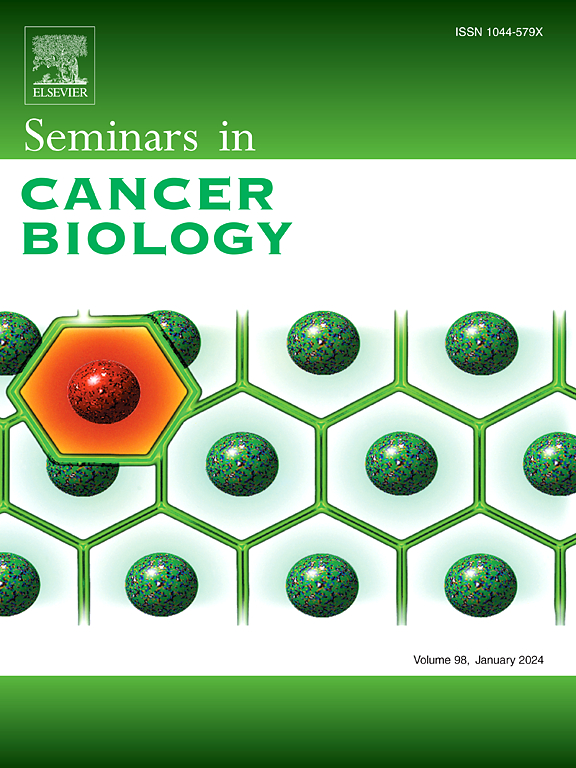Metabolic reprogramming in cancer therapy-related cardiovascular toxicity: Mechanisms and intervention strategies
IF 12.1
1区 医学
Q1 ONCOLOGY
引用次数: 0
Abstract
Cancer therapy-related cardiovascular toxicity (CTR-CVT) poses a major challenge in managing cancer patients, contributing significantly to morbidity and mortality among survivors. CTR-CVT includes various cardiovascular issues, such as cardiomyopathy, myocardial ischemia, arrhythmias, and vascular dysfunction, which significantly impact patient prognosis and quality of life. Metabolic reprogramming, characterized by disruptions in glucose, lipid, and amino acid metabolism, represents a shared pathophysiological feature of cancer and cardiovascular diseases; however, the precise mechanisms underlying CTR-CVT remain inadequately understood. In recent years, strategies targeting metabolic pathways have shown promise in reducing cardiovascular risks while optimizing cancer treatment efficacy. This review systematically summarizes metabolic reprogramming characteristics in both cancer and cardiovascular diseases, analyzes how anticancer therapies induce cardiovascular toxicity through metabolic alterations, and explores emerging therapeutic strategies targeting metabolic dysregulation. By integrating current research advancements, this review aims to enhance the understanding of CTR-CVT and provide groundwork for the development of safer and more effective cancer approaches.
代谢重编程在癌症治疗相关的心血管毒性:机制和干预策略
癌症治疗相关的心血管毒性(CTR-CVT)对癌症患者的管理提出了重大挑战,对幸存者的发病率和死亡率有重要影响。cvt包括心肌病、心肌缺血、心律失常、血管功能障碍等多种心血管疾病,严重影响患者预后和生活质量。代谢重编程,以葡萄糖、脂质和氨基酸代谢紊乱为特征,是癌症和心血管疾病的共同病理生理特征;然而,cr - cvt的确切机制尚不清楚。近年来,针对代谢途径的策略在降低心血管风险的同时优化癌症治疗效果方面显示出了希望。本文系统总结了癌症和心血管疾病的代谢重编程特征,分析了抗癌治疗如何通过代谢改变诱导心血管毒性,并探讨了针对代谢失调的新兴治疗策略。本文旨在通过整合当前的研究进展,加深对cvt的认识,为开发更安全、更有效的肿瘤治疗方法提供基础。
本文章由计算机程序翻译,如有差异,请以英文原文为准。
求助全文
约1分钟内获得全文
求助全文
来源期刊

Seminars in cancer biology
医学-肿瘤学
CiteScore
26.80
自引率
4.10%
发文量
347
审稿时长
15.1 weeks
期刊介绍:
Seminars in Cancer Biology (YSCBI) is a specialized review journal that focuses on the field of molecular oncology. Its primary objective is to keep scientists up-to-date with the latest developments in this field.
The journal adopts a thematic approach, dedicating each issue to an important topic of interest to cancer biologists. These topics cover a range of research areas, including the underlying genetic and molecular causes of cellular transformation and cancer, as well as the molecular basis of potential therapies.
To ensure the highest quality and expertise, every issue is supervised by a guest editor or editors who are internationally recognized experts in the respective field. Each issue features approximately eight to twelve authoritative invited reviews that cover various aspects of the chosen subject area.
The ultimate goal of each issue of YSCBI is to offer a cohesive, easily comprehensible, and engaging overview of the selected topic. The journal strives to provide scientists with a coordinated and lively examination of the latest developments in the field of molecular oncology.
 求助内容:
求助内容: 应助结果提醒方式:
应助结果提醒方式:


